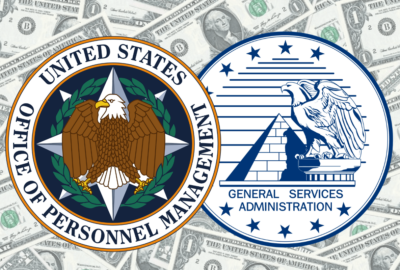
Trump’s 2021 budget pledges training for 400,000 federal employees
The goal to train nearly 20% of all federal employees on cybersecurity, project management and data science skills is the Trump administration's most clear target...
The Trump administration set one of its first, clear goals for upskilling and reskilling the federal workforce in its latest budget proposal.
“We have made a firm commitment to reskilling up to and possibly exceeding 400,000 federal workers, focused on first and foremost jobs where we have a hard time filling roles,” Margaret Weichert, deputy director for management at the Office of Management and Budget, told reporters Monday.
The Trump administration began a more concerted effort to reskill a small portion of employees in 2019 through a few pilot programs. But setting a specific goal to train 400,000 federal employees — or about 20% of the existing workforce of 2.1 million people — illustrates the scope of the administration’s plans to scale up these efforts.
The Trump administration plans to focus on training and reskilling opportunities in the data science and analytics, cybersecurity, IT and project management fields, Weichert said.
It will partner with agencies to develop a Federal Robotic Process Automation Reskilling Academy, building off best practices developed from the cybersecurity reskilling pilots.
“These employees will learn how to conduct process mapping and develop and deploy ‘bots’ without the need for extensive information technology training,” the 2021 budget request reads.
Though OMB, the General Services Administration and the Office of Personnel Management will all work together to centrally test and develop governmentwide reskilling initiatives, Weichert said, most new training programs will be funded at the agency level.
It’s why the Trump administration has proposed allowing agencies to spend an additional 1% of their salary budget on performance-based awards and training programs for employees.
“By raising the cap on that salary and rewards component that is associated with the discretionary budget in the agencies, we are encouraging the agencies to tackle this issue where they are,” Weichert said. “There will be administrative changes that come from OMB to reinforce the ‘how.'”
A wish list for federal hiring reforms
Beyond the new proposals, the president’s 2021 request reiterates a few common talking points for the Trump administration.
The existing General Schedule classification system is well past its prime and doesn’t suit the needs of a modern workforce, the request said.
“The personnel system these men and women work within is structured for stability not agility,” the budget request reads. “The legislative framework for the civil service was crafted in another era, for a different workforce, doing a different type of work.”
Hiring continues to be one of agencies’ biggest challenges, OMB said, and the administration will continue to suggest administrative alternatives in attempt to address those challenges.
The administration will, for example, issue more guidance to agencies later this year on how they can systematically include subject matter experts in the hiring process. OPM and the U.S. Digital Service piloted this approach with a few agencies last year.
Still, the Trump administration said it will continue to seek “further statutory flexibilities” to improve hiring. These authorities include:
- Enabling agencies to hire temporary experts,
- Creating an industry exchange program, similar to an existing program that allows non-profit and academic employees to temporarily serve on government projects,
- Expanding the authorities for term and temporary hires, and
- Modernizing qualification requirements.
Many of these recommendations aren’t new. The administration has, for example, asked Congress to create an industry-government exchange program in the past, but members have never passed the needed legislation.
The administration said it also intends to eliminate degree requirements for some federal jobs, especially when they’re “not inherently necessary to perform the duties of a position.”
“Over-reliance on degrees can be a barrier to entry into federal service, and it can also prevent
current civil servants who possess relevant skills, training or experience from transitioning into emerging fields within the federal sector,” the budget request reads.
Besides hiring improvements, the Trump administration said it’s also focused on improving the leadership pipeline to the Senior Executive Service.
OPM will offer new executive assessments to help agencies identify top applicants for SES positions, according to the budget request.
And more regulations are also coming on the implementation of the president’s 2018 workforce executive orders, according to the request.
“Perhaps not surprisingly in year-four of an administration, there’s not a lot of net new ideas,” Weichert said. “There’s some new ways on how we’re pursuing and implementing against those ideas.”
The president’s 2021 request again includes a joint submission for GSA and OPM, despite congressional language in the most recent defense authorization bill that essentially issued a temporary pause on the administration’s planned merger of those two agencies.
“We in no way, shape or form will be bucking either the spirit or the mechanics of what was included in the NDAA language about the study associated with OPM and GSA,” Weichert said of the joint budget request for the agencies. “We actually are very confident that that study will show what we already know, which is almost every large government in the world, both at the state and national level, already has integrated management capabilities that are very similar to what we’ve proposed.”
Copyright © 2025 Federal News Network. All rights reserved. This website is not intended for users located within the European Economic Area.
Nicole Ogrysko is a reporter for Federal News Network focusing on the federal workforce and federal pay and benefits.
Follow @nogryskoWFED





